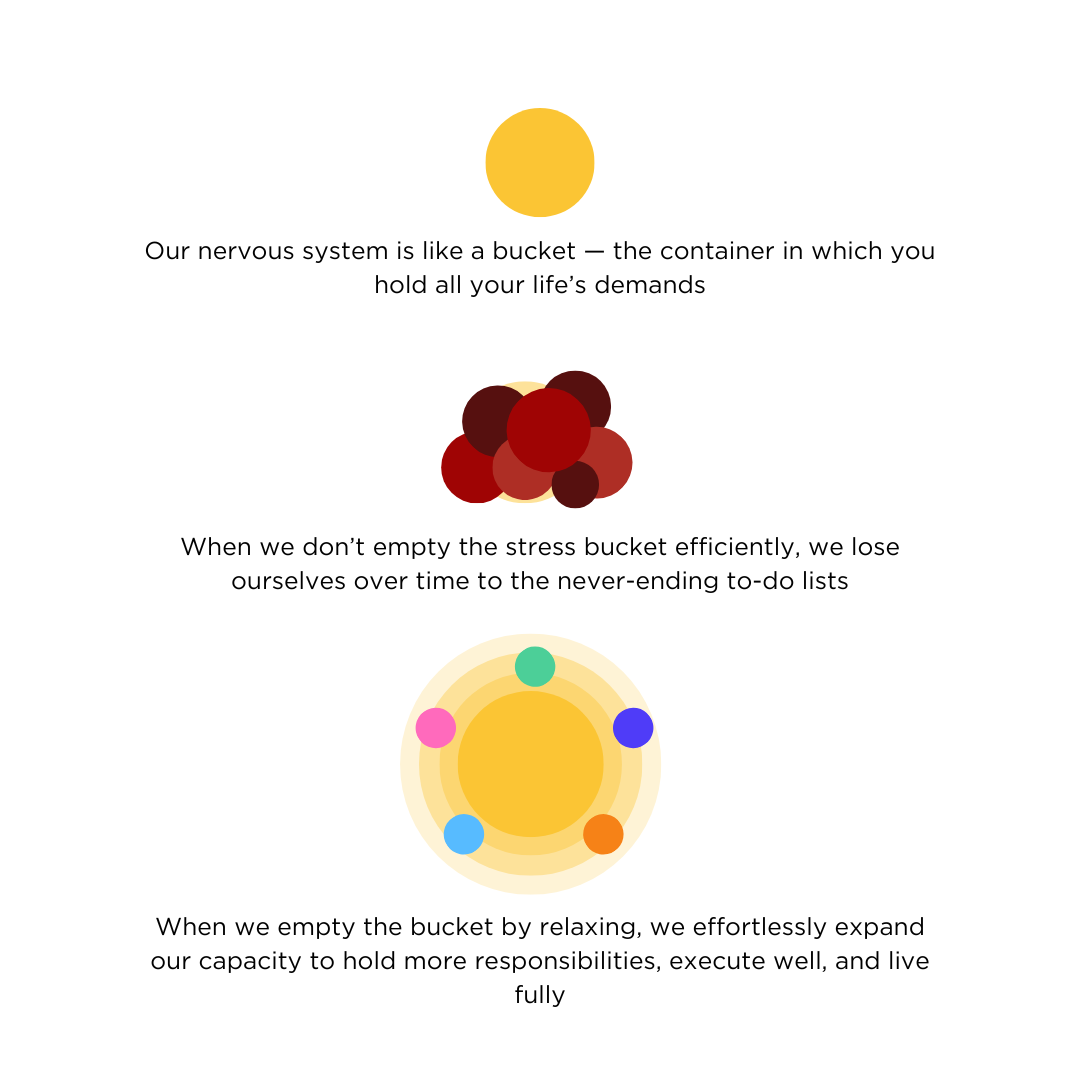In today's fast-paced, high-pressure corporate environments, resilience is often touted as a crucial trait for effective leadership. We sit through leadership trainings that teach us scripts for how to be more adaptable, emotionally intelligent, and strategic, especially in the face of pressure. But what if the real answer lies in being able to neutralize pressure more efficiently, rather then performing better in spite of it?
The Missing Skill
Effective leaders are successful because they already possess the skills to adapt, relate, and think ahead. They become less resilient under pressure not because they suddenly abandoned their skills, but because they lose access to these skills due to primal fight-or-flight, self-preservation responses to stress and tension. Rather than adding more scripts to overloaded minds, the key to true resilience lies in a rarely-discussed leadership skill – the ability to relax.
When tension runs high in financially, emotionally, and interpersonally risky situations, relax deeper into your bodymind, not cookie-cutter scripts.
What is Relaxedness
Relaxedness, as defined by Merriam Webster, is the state of being at ease. What or who at work puts you at ease and into flow? On the flipside, how do you feel about the uncomfortable, maybe even challenging, tasks, people, and dynamics that come your way? Relaxation is a critical skill in leadership because it allows uninterrupted ease regardless of external circumstances, which means you maintain unfettered access to all your skills that got you this far at all times. Try it now.
Close your eyes, take three deep breaths, the follow these instructions to relax your body:
1. Place your arms across the chest, fingertips on the tops of your shoulders, like you're giving yourself a hug
2. Slowly glide your hands down the arms to your elbows while applying gentle pressure. Do you notice muscles letting go, however incrementally?
3. Continue towards your palms, giving them a squeeze
This series of motion activates your amygdala and signals to your brain, “I’m safe.”
Take a moment to reflect on what you felt. Did you notice a loosening sensation in your face, shoulders, or abdomen? Or maybe somewhere else you never even realized you were holding in? Did you notice thoughts slowly down? Imagine being able to always make decisions from this state of calm.
Why Relaxedness Matters in High Performance Leadership
Our nervous system is like a bucket. Everything we do – run from meeting to meeting, jump between ten different projects in the span of a single day, listen to the hopes and dreams and grievances of those we lead – adds some amount of water (stress) to the bucket. When we relax, the water is drained, and space in your bucket becomes available. When we don't relax (or don't do it efficiently), the water (stress) fills up faster than you can drain, and eventually spills out. The tricky thing is, as much as the corporate world wants us to believe in work-life balance, you have one nervous system, one bucket, its capacity shared amongst all of your life's demands. Now imagine adding kids' birthday parties, household chores, remembering to catch up with friends, and other personal obligations to the list of things demanding space in your bucket. It adds up quickly.
A bucket with more available space equals more resilience, which equals more access to all of your skills to adapt, relate, and think ahead. Acquiring the skill of relaxation allows you to both drain your bucket more efficiently, and to expand your bucket capacity.
It's Easy to Start Today
What can you do today to begin mastering the skill of relaxation? Here are three more practical techniques to get you started:
- Body Scan: Implement an active practice of body scanning to build intentional resets for your nervous system. Start from the top of your head and slowly move down to your toes, noticing any areas of tension or discomfort. This practice increases bodily awareness and helps you identify where you're holding stress.
- Conscious Breathing: Research shows we're only three breaths away from feeling differently. Whenever you're feeling overwhelmed, take three deep breaths, making the exhale longer than the inhale, which activates your parasympathetic response. Inhale slowly through your nose for a count of four, hold for a count of two, then exhale through your mouth for a count of six. This simple technique can quickly shift your bodymind state.
- Body Talk: if you're feeling up to tackling a specific situation in your life, this is the technique for you. Here is a guided audio of this technique.
Adopting a toolkit mindset is crucial. Your relaxation toolkit is something you can modify, expand, and upgrade, continuously evolving with you and your needs. Start small with something you can commit to daily. Like building any habit, small doses everyday beats big inconsistent efforts – when it comes to relaxation, taking 5 minutes a day to implement one of the techniques above will do more to condition your body than lavish spa weekends.



Member discussion: